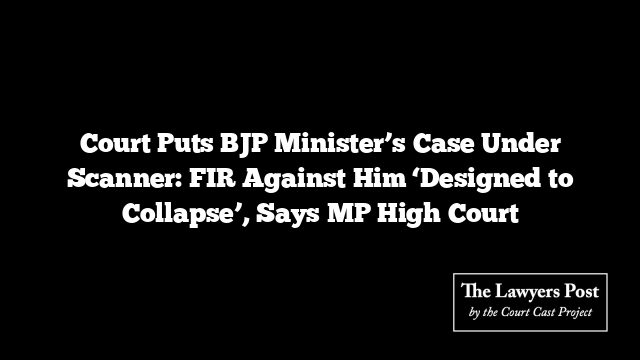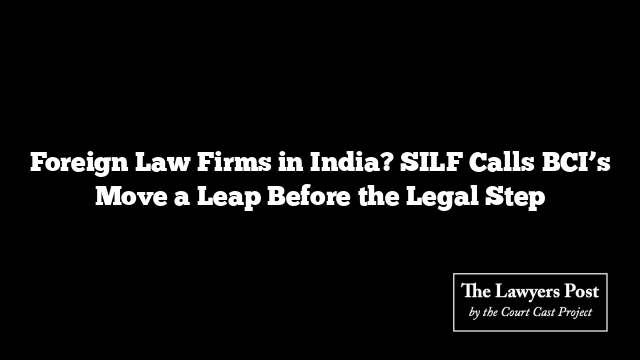The Madhya Pradesh High Court isn’t buying the paperwork.
In a blistering courtroom exchange, the Jabalpur Bench made it clear it would keep a tight watch on the investigation into BJP minister Kunwar Vijay Shah’s inflammatory comments about Colonel Sofiya Qureshi — the Army officer who briefed the nation on Operation Sindoor, India’s military retaliation following the deadly Pahalgam terror attack.
The Court had taken suo motu cognizance of Shah’s remarks, which seemingly equated Colonel Qureshi to “the sister of terrorists,” and demanded that the police file an FIR by Wednesday evening. The State followed through — technically. But when the case came up again Thursday, Justices Atul Sreedharan and Anuradha Shukla didn’t mince words.
“Have you read the FIR?” Justice Sreedharan asked sharply. “It has no ingredients. No mention of the offence. It’s been drafted in such a manner that it can be quashed.”
Indeed, the Court went on to dissect the FIR for what it called glaring omissions. “Not a whisper” of what Shah allegedly did to warrant the charges, just a bland recital of procedural steps. The Court described it as a barebones document “designed to leave space” for easy dismissal — raising concerns over the State’s sincerity in pursuing the case.
So grave were the doubts that the judges formally announced they would monitor the investigation. “This FIR does not inspire confidence… unless supervised, a fair and lawful probe cannot be guaranteed,” the order read.
To prevent any backsliding, the Court directed that its prior order — outlining Shah’s alleged infractions — be read as part of the FIR for all legal purposes. The case is set to continue after the summer recess.
In parallel, Shah made a dash to the Supreme Court seeking reprieve. He got none. The Chief Justice of India made it clear the minister’s words had consequences: “Such a person holding constitutional office must act responsibly… when the country is in crisis, he must watch what he says.”
The High Court had earlier observed that Shah’s comments potentially violated multiple sections of the Bharatiya Nyaya Sanhita (BNS). Section 152 — actions endangering national unity; Section 196(1)(b) — promoting religious enmity; and Section 197 — assertions prejudicial to integration.
Colonel Qureshi, a senior Army officer, became the target of Shah’s rhetoric after she publicly spoke about Operation Sindoor — India’s retaliatory strike after the April 22 terror assault in Pahalgam that claimed 26 civilian lives. Shah’s words — “Those who widowed our daughters, we sent a sister of their own to teach them a lesson” — were widely seen as a targeted swipe at Qureshi, who is Muslim.
The High Court saw the remark not just as crude, but dangerous — possibly fuelling religious hostility and undermining national cohesion. “It imputes that a person’s loyalty to the nation is suspect solely because of their faith,” the Bench remarked.
Back in the courtroom, the State’s Advocate General tried to defend the process. “We’ve complied within four hours,” he said. “Please don’t view the State with suspicion.” But the judges weren’t interested in timelines — only substance. And from where they sit, that’s what’s missing.
The fallout from Shah’s words is far from over. The Court’s message is loud and clear: no one — not even a minister — is above accountability when the nation’s unity is on the line.





